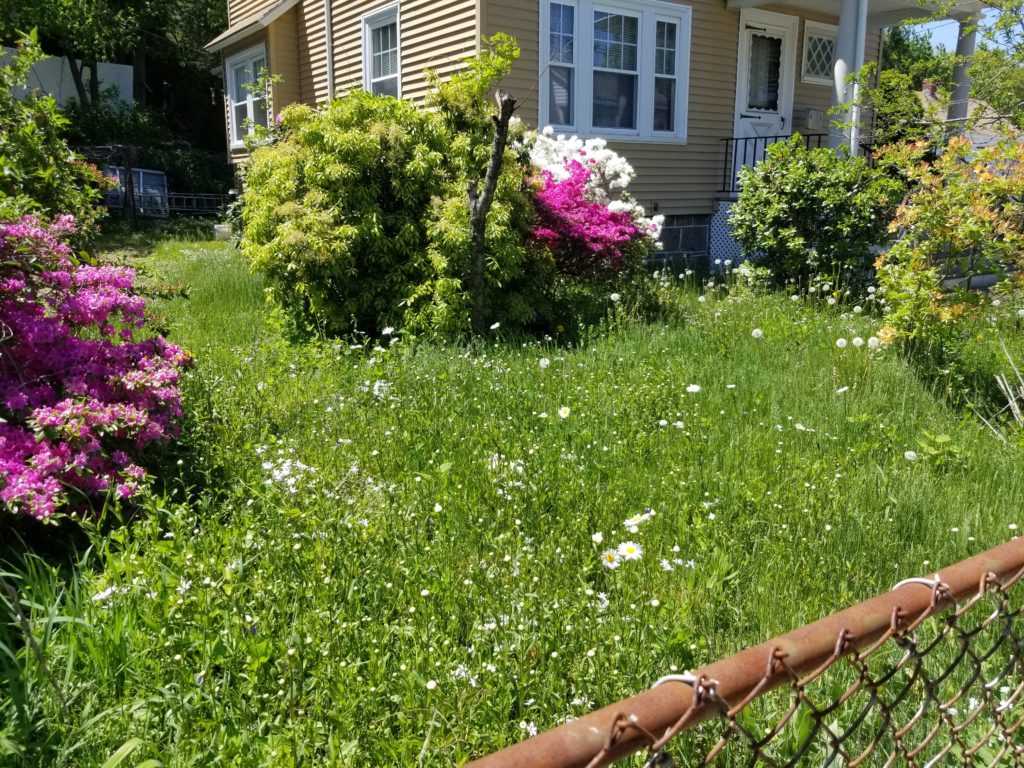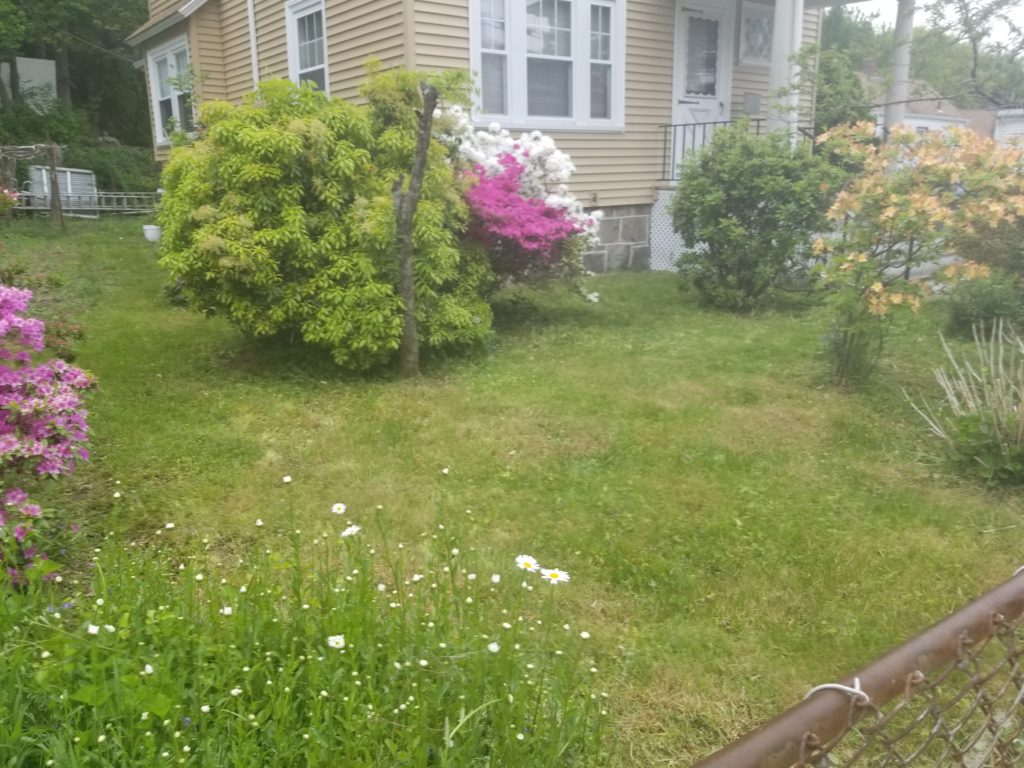The Lawn of Legend

There was a brief period of time when I was a kid, a few weeks at most, when the backyard did not get mowed. I don’t remember how old I was, but I do remember the glory of it. The grass rose up like a forest, boundless blue-green tufted by seedy, serrated sheaths. The unmowed grass grew timidly at first, but once it realized that no blades were coming to bother it, the lawn transformed itself into prairie fit to devour an eight-year-old. Compared to the fungal waste that our yard would come to resemble over the following decade, that period of uncut grass seemed like the very beginning of the world.
We would play Pokémon in that grass, my cousin and I hollering and rolling as we imagined all the different varieties that could inhabit our own personal corner of the wilderness. Meanwhile, real animal life seemed to pour forth from the dirt like the tenets of a plague. Stalks swayed and flicked as bony grasshoppers leapt and dove between laden seed pods. A rodent living underneath the shed grew bold enough to reclaim his proper title as “field mouse.” The wheat, sensing rightly that this unchecked period was as transitory as the moths, birthed an entire ecosystem in the span of a week.
I was generally terrified of insects and birds and anything that moved unseen and unpredictably, but I played in that grass every day. I rolled in it, crawled through it, and watched it. Officially speaking, we were forbidden from touching the backyard at all during this period. My mother screamed about ticks and other disease-carrying arthropods. My best friend’s mom had an even more aggressive response. Grass stains can kill, apparently.
The grass hurt my father the most. Each green needle stabbed at his pride and caused his skin, usually so rough and calloused, to bleed beads of shame. It seemed this riotous grass was the latest slight in an endless train of frustrations that stretched back to before I was born. He would sigh over and grass and yell at the grass. He would complain of unheard whispers from the neighborhood about how terrible our lawn looked, about property values and the steady decline of suburban integrity. The grass is destroying us! We are the neighborhood laughingstock!
I don’t remember exactly why the grass had been allowed to grow so tall in the first place. Maybe the ridable mower, that herbivorous shark of a machine with aerodynamic hull and one-thousand speeds, finally croaked. Maybe mom was in the hospital again. I really don’t remember, but the issue did clear up eventually. The giga-mower roared back to life one day and the tall grass was gone in an hour with nothing but a haze of pollen to indicate that anything strange and unearthly had ever been allowed to grow back there at all. I’m sure the ordeal killed my lungs, stuffed my nose, and forced my eyeballs shut for a week.
Many years later, the third-grade teacher that lived across the street got a divorce and moved away. In her place came an Indian family containing a mother, father, and a little son that liked to wander and gape at every corner of his new yard. Perhaps he had never had a yard before. This turn of events gave the rest of the neighborhood something new to chitter about. I began to notice little comments, a remark about catching a whiff of curry every time the neighbors opened their doors to step outside. Sometimes the father didn’t wave or smile eagerly enough when the Lexus SUVs drove by. An exotic new neighbor gives a once-new suburb excitement to feed upon for months.
Among all the little peeves was one crucial flaw—our new neighbors did not know how to take care of their lawn. As their stay grew longer, so did their grass, and before long the entire front lawn resembled the primordial grove of legend. The toddler was likewise entranced. The tiny blades that had once cushioned his feet now swallowed his head. His little head could be seen bobbing as he endlessly marched his matted stretch of wilderness like a conquistador. I’m sure the experience enriched that toddler’s life immensely, but the lawn was a bane to the neighborhood. Old griefs were born anew in my father, and he began to complain loudly about the embarrassment across the street. His imagination likely swam with nightmares of plummeting property values and changing times.
“Is the guy going to hire a crew?”
“Has he ever owned a lawn before?”
My father eventually settled on the theory that our neighbor was some big city tech-wizard that had come to colonize our slice of American suburbia. There are no lawns in the concrete jungle. Frustration turned to pity, and my dad took it upon himself to lay the green menace low. He rode his monster mower across the street and cleaned up the place in no time at all. The crickets and butterflies and mastodons returned to the earth just as quickly as they had emerged, and our neighbors learned soon after to keep it that way.
I don’t live there anymore, but I imagine the lawns are still as flat and brown as ever. An unpruned landscape is a very dangerous thing.
